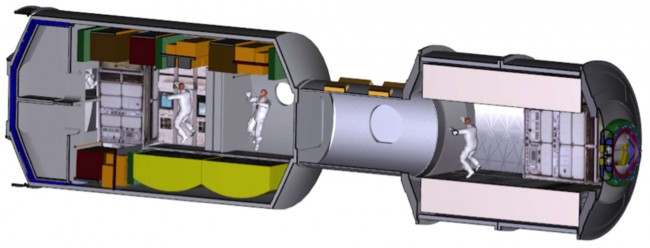
Of course, NASA is dreaming about sending astronauts to Mars within the next few decades, but the truth is that nobody still knows exactly how we will survive a long flight or create a base on the red planet.
Orion spaceship in which the astronauts will go to Mars, has a diameter slightly greater than the length of a minivan. It’s not so much if you consider that a flight to Mars will take at least 6 months.
In order not to go mad, travelers to Mars will need more space for living, with personal rooms and the place for exercise. At NASA we want to connect the Orion capsule with the manned module in space, but until now scientists never imagined how such a module would look like. And this is not to mention, where the astronauts will live on arrival on Mars.
However, as recently became known, NASA has allocated funds to finally solve this problem. Space Agency is going to spend at least $ 55 million to develop residential module for deep space and create a working prototype by 2018. In the 2020s, NASA is going to test the module in the area of the moon before we send it to Mars in 2030.

However, this is still a controversial issue, whether NASA will be able to do anything until 2018. At the moment the plans of the Agency in appearance and characteristics of the module can be described by the words “tabula rasa”. Protection of astronauts from cosmic radiation while maintaining a small weight will be one of the most difficult problems with which to face the engineers.
Currently the closest to creating such a module is Bigelow Aerospace, which soon will post a test version of its inflatable living module on the ISS. NASA also funded companies such as Boeing, Lockheed Martin, Orbital ATK, for the design of the module.
Looks like NASA will have to hurry. According to the report, the Agency must report the progress of works and the allocation of funds within 180 days after the adoption of the law on the financing of what happened on 18 December.
